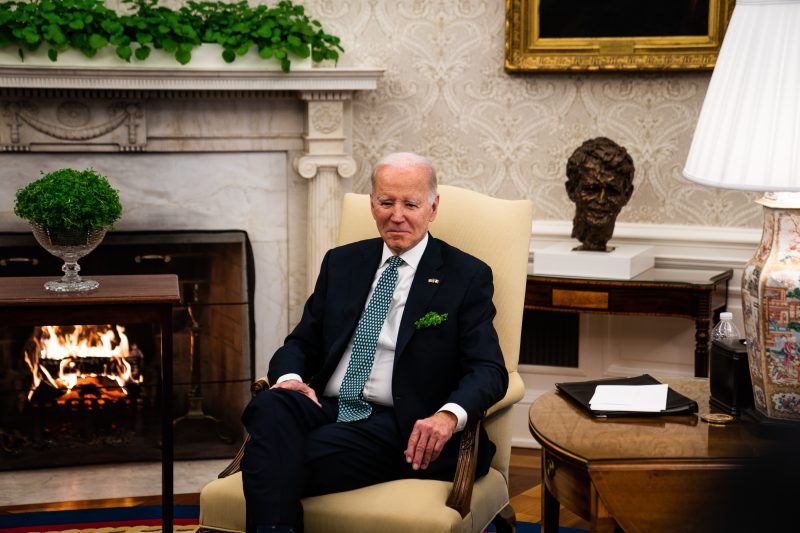
Biden asks Congress to impose tougher penalties on executives of failed banks
President Biden on Friday called on Congress to impose tougher penalties on senior bank executives whose mismanagement contributes to the failure of their institutions, alluding to the “mess” left behind by the collapse of Silicon Valley Bank and Signature Bank in recent days.
“I’m firmly committed to accountability for those responsible for this mess,” he said in a statement. “No one is above the law — and strengthening accountability is an important deterrent to prevent mismanagement in the future.”
Biden said the current law limits his administration’s authority to hold bank executives responsible when their institutions fail and enter receivership under the Federal Deposit Insurance Corp., or FDIC, as Silicon Valley Bank did a week ago.
Biden asked Congress to expand the FDIC’s authority to impose stronger punishments on executives at such banks, including barring them from taking other jobs in the banking industry, issuing fines and reclaiming their compensation.
That compensation should include gains from stock sales, the White House specified later Friday, noting that Silicon Valley Bank CEO Greg Becker sold $3.6 million in company stock days before the bank’s collapse. At this time, the FDIC has authority to claw back such compensation only from the very largest financial institutions under the Dodd-Frank Act, the law that tightened rules in the aftermath of the 2008 financial crisis.
“That authority should be extended to cover a broader set of large banks — including banks the size of Silicon Valley Bank and Signature Bank,” the White House said in its statement, referring to the New York-based bank that needed federal intervention.
The White House also noted that, under existing law, the FDIC can only fine bank executives who “recklessly” engage in a pattern of “unsafe or unsound” practices. The federal agency also can prevent executives from holding jobs at other banks only if they demonstrate “willful or continuing disregard for the safety and soundness” of their bank.
“Congress should strengthen this tool by lowering the legal standard for imposing this prohibition when a bank is put into FDIC receivership,” the White House said. “The President believes that if you’re responsible for the failure of one bank, you shouldn’t be able to just turn around and lead another.”
Biden’s populist-driven request to Congress reflects his initial concerns about aiding the Silicon Valley Bank, stemming in part from his belief that the federal government had been too friendly to big banks during the 2008 crisis. The president later agreed to the federal intervention to protect depositors. His call on Friday targeted bank executives.
Biden also again defended his administration’s decision to protect depositors at Silicon Valley Bank, saying it was necessary to shield jobs and small businesses.
“This week, we took decisive action to stabilize the banking system without putting taxpayer dollars at risk,” he said. “Our banking system is more resilient and stable today because of the actions we took. On Monday morning, I told the American people and American businesses that they should feel confident that their deposits will be there if and when they need them. That continues to be the case.”
The prospects for any legislation to tighten banking regulations are uncertain as Republicans control the House and strongly supported loosening the rules in 2018. Dozens of moderate Democrats also supported that bill.
President Donald Trump signed the 2018 bill, sponsored by Sen. Mike Crapo (R-Idaho), that scaled down requirements imposed under the 2010 Dodd-Frank law and reclassified the size of banks that would have to face increased regulatory scrutiny, raising that threshold for some from $50 billion in assets to $250 billion in assets. Silicon Valley Bank had roughly $209 billion in assets, so it was exempt from those more-stringent regulations.
Lawmakers from both parties who supported the 2018 bill have dismissed concerns that those loosened regulations led to the failures of Silicon Valley Bank. But Democrats who opposed the 2018 legislation have said the two are linked.
“The banks loaded up on risks. They paid the executives lots more money and salaries and bonuses. And everything went great. Profits went up right up until they blew the banks apart,” Sen. Elizabeth Warren (D-Mass.) told The Washington Post this week.
Camila DeChalus and Leigh Ann Caldwell contributed to this report.
